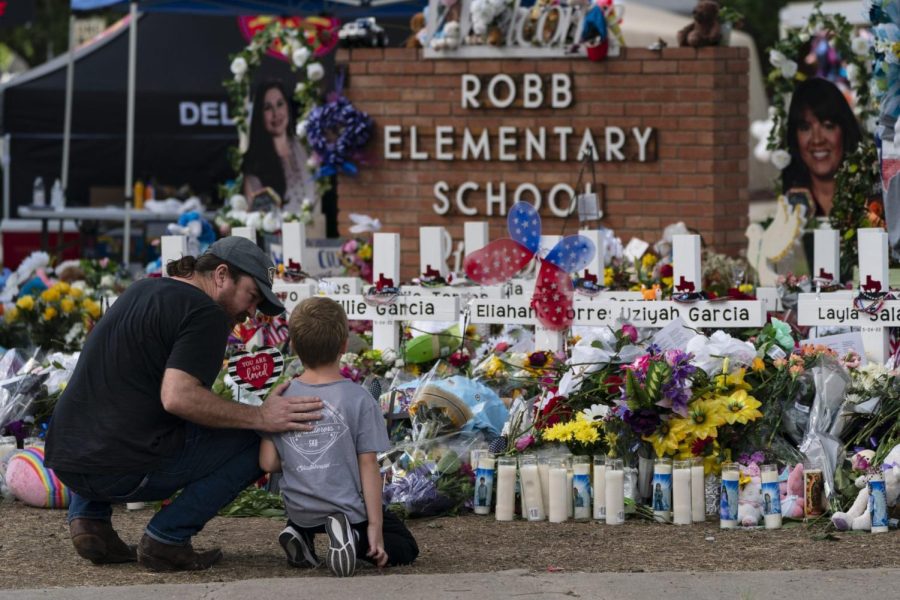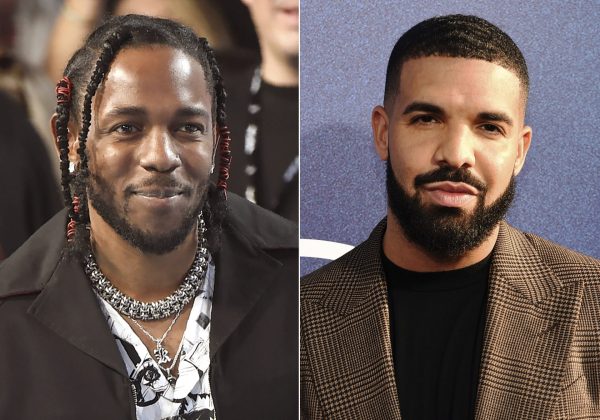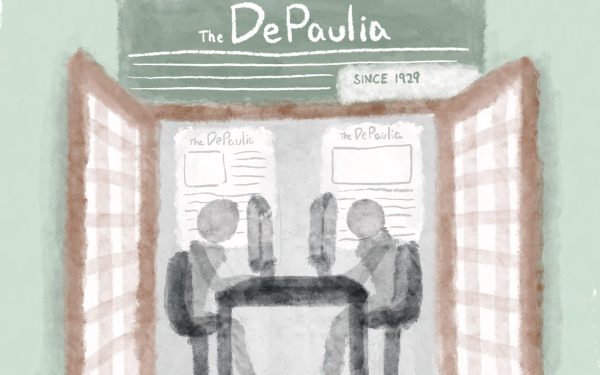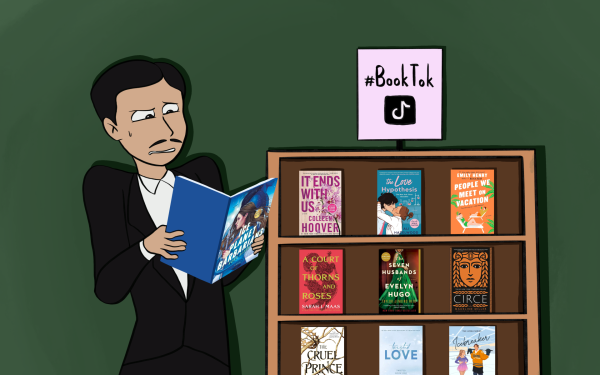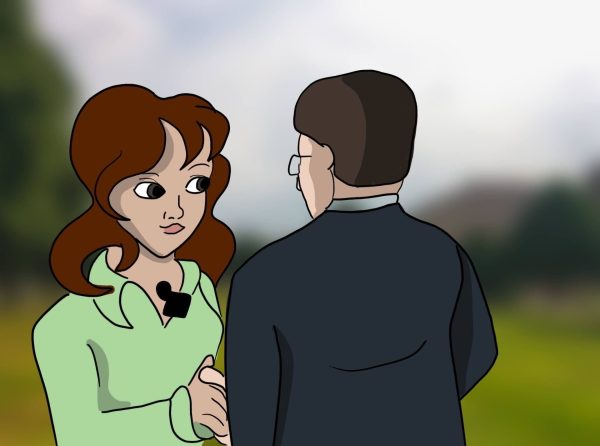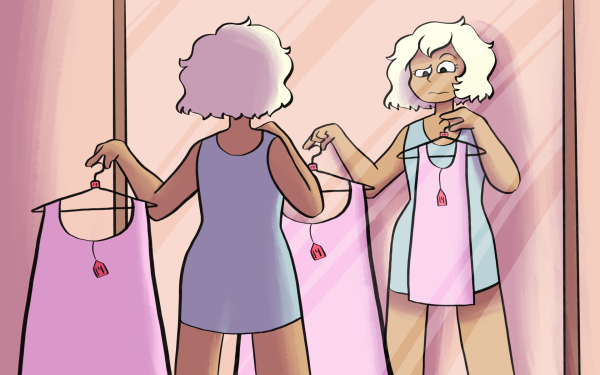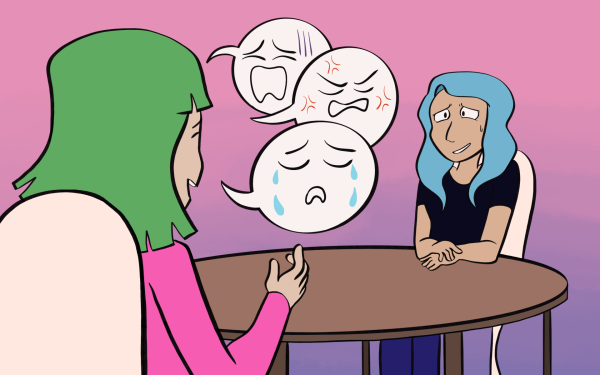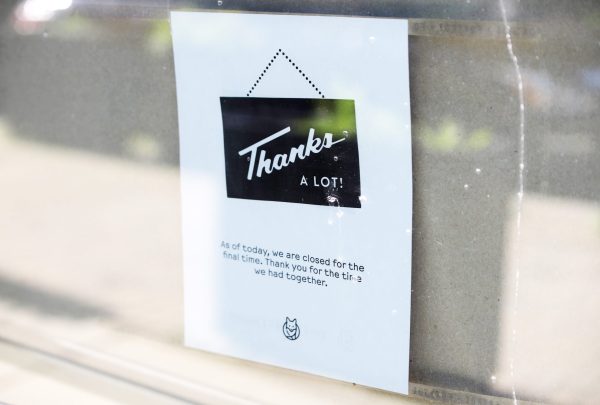Opinion: Americans want change, but our political system won’t allow it
A man and a boy visit a memorial at Robb Elementary School in Uvalde, Texas Sunday, May 29, 2022, to pay their respects for the victims killed in a school shooting. (AP Photo/Jae C. Hong)
In the wake of the recent, tragic mass shootings in Buffalo, N.Y., Uvalde, Texas and the countless shootings in the nation’s largest cities this past month, America is about to enter yet another battle over gun rights.
In 2022, the Gun Violence Archive recorded 216 mass shootings and over 17,500 deaths caused by senseless gun violence. Yet, the nation’s deeply divided political beliefs about gun ownership and their role in American society will undoubtedly stand in the way of passing meaningful gun control laws.
“We have an incredibly divided government,” said Eulalie Laschever, an adjunct sociology professor at DePaul who specializes in American gun politics. “The combination of the political gridlock that prevents everything from getting passed, along with the fact that there’s so much more money and power within gun rights groups than gun control groups, makes it really difficult to move the issue.”
The majority of Americans support restrictions on guns and believe gun violence is a serious problem, yet passing legislation on the federal level is nearly impossible, and now, it is becoming even more difficult at the state level where gun control activists have made substantial strides in the past.
Small states disproportionately influence the distribution of national power in America. Therefore, because of the Senate’s filibuster rule, the majority vote holds little weight in regards to passing meaningful gun legislation. If the Senate were to do away with the filibuster, then legislation would be passed that represents the majority of the American people, rather than a small subset of the population.
This is partly because the anger and passion for gun control that ensues after a mass shooting takes place, is often fleeting and easily forgotten once enough time passes.
“Everytime there’s a mass shooting, the gun control movement gets a little bit stronger … but the commitment isn’t there,” Laschever said. “People care after a mass shooting for a few months, and then they tend to focus on other issues, whereas gun rights supporters are always gun rights supporters.”
The consequence of the deeply divided political culture we see today is that while mass shootings tend to strengthen the gun control movement. It also fosters fear in gun rights advocates who tend to purchase more guns following a shooting, than they may have before. Research shows a significant increase in gun sales in the months following the deadliest mass shootings. This is largely why, historically, mass shootings have little impact on gun reform and often have the opposite effect.
While liberal gun control advocates believe tragedies like the Uvalde school shooting create opportunity for change, gun rights supporters prompted by the National Rifle Association harden their position out of fear their Second Amendment right is being threatened.
“Our children dying is not helping to [pass gun control laws],” Diane Latiker, the executive director and founder of Kids Off the Block, a Chicago-based non profit dedicated to helping at-risk youth escape economic impoverishment, said. “If that doesn’t move you to set aside whatever it is that is keeping you from doing whatever you can to stop this violence, then I don’t know what else can be done.”
Regardless of how many tragedies occur, the problem is America’s divided political system continues to prevent change. According to Latticker, this cycle of violence continues to persist because you have two conflicting worldviews that have developed into a culture war issue that makes compromise so difficult.
Although polls show Democrats, Independents and Republicans alike support some form of gun law reform, the majority opinion is repeatedly deemed unsubstantial in enacting change on the federal level because of the filibuster — an action meant to delay or prevent a vote on a bill, resolution, amendment, or other question, and provides a veto over national policy to a small number of states.
“There would be a two-edged sword to getting rid of the filibuster because you would be able to pass major gun control, but you would also be able to pass all of the gun rights laws,” Laschever said. “Is that really an answer?”
Nonetheless, gun control legislation must be passed on the federal level to make a difference in decreasing gun violence. Yet, the disproportionate influence of small states in the democratic system makes it nearly impossible for any legislation to pass through the Senate.
While Illinois has some of the most restrictive gun laws in the country, they are ineffective in reducing gun violence specifically in Chicago because of the lenient gun laws in bordering states. According to a gun tracing report commissioned by Chicago’s former mayor in 2017, 60 percent of the majority of illegally used or possessed firearms recovered in Chicago were from Indiana.
Laschever said it doesn’t matter how strong Chicago’s gun laws are. If you can buy a gun in Indiana and bring it back to Chicago, the laws become futile. There’s only so much you can do to control the flow of guns in a small geographic region if states have different laws.
Although passing meaningful gun control legislation seems nearly impossible in a nation riddled with gun violence, yet so deeply politically divided that seemingly nothing can be done to prevent more violence, Americans still maintain hope for a better future.
“I have to stay hopeful, because if I don’t, then I can’t give hope to the young people I serve,” Latiker said.
People have become desensitized to gun violence because of how frequently it occurs, and Laschever believes forcing yourself to care after each shooting is one way to fight for reform in a corrupt political system.
“There’s power in the outrage and there’s power in the shock of these events,” Laschever said. “But if people are no longer shocked and outraged because it’s something that happens all the time…the potential for an event to be transformative gets undercut.”
It is time to relinquish our anger, avoid unnecessary rhetoric on both sides of the political spectrum, and take action to curb the gun violence that takes too many American lives every year. Being desensitized is no longer a solution, but only serves to strengthen the political agenda of politicians who do not care about the lives of the American people, but profit from their suffering.


